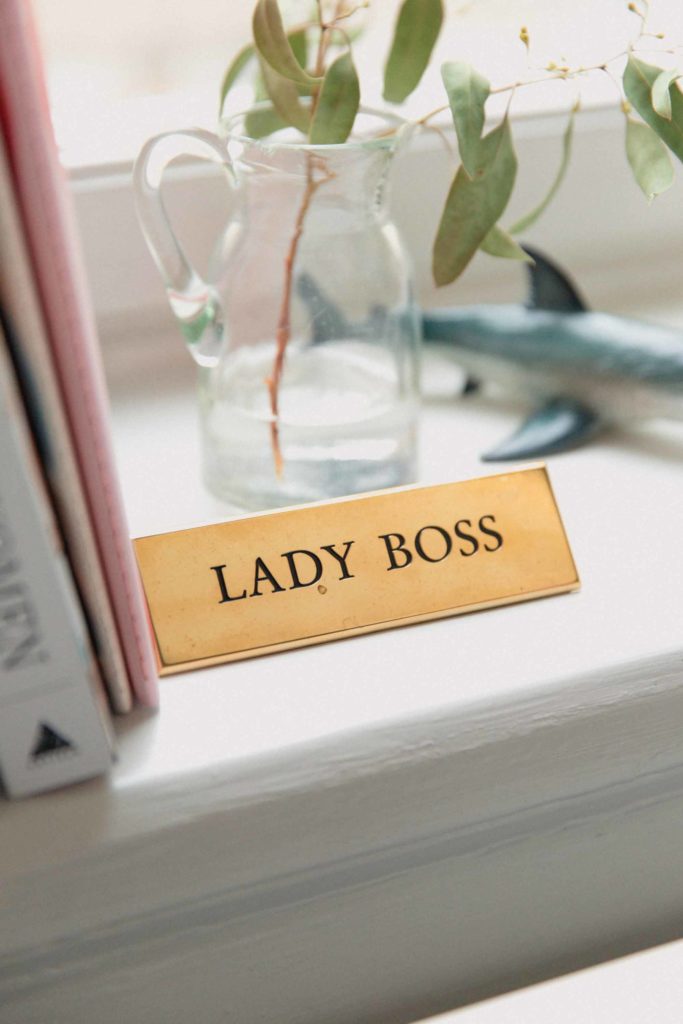Let us preface this article by saying it’s not a shade parade; we love working with women and men! However, for all those good Adam’s apples, some bad ones spoil the bunch for women in the workplace.
As women business owners and female entrepreneurs, we find it important to share our experiences—wonderful and blah—to empower other women in the workplace to do the same, break from the norm, and be their baddest boss lady selves. Men reading this, please learn from the error of others’ ways. Ladies, enjoy a few commiserating eye rolls and feel better knowing you aren’t alone.
1. We love your work and the results, but we want to pay half for it from now on.
Earning less than men is hard. Proving you’re just as valuable as men, harder still. But when you knock a project out of the park, male clients acknowledge your success and make money off of it, and then those male clients ask to pay you less, it’s challenging not to vomit. Or go all Britney Spears and bludgeon a car with an umbrella/shave off your hair. #FreeBritney. Men, please stop asking women to do more for less. Would you ask a fellow dude to do the same? Or better yet, would you respond well to someone who asked that of you?
The same goes for fellow women! You’ve probably heard the phrase, “there’s a special place in hell for women who don’t support other women.” Don’t ask others what you wouldn’t want to be asked of you. Your time and expertise have value. Respect that others feel that way about themselves and their time too.
2. Hey, girls. Thanks, girls. (Women in the workplace are not girls)
Nothing takes the wind out of your sails like having a full-grown man call you a girl. We’re sure this isn’t intended maleficence; Quite the contrary—a friendly tactic men use to show women in the workplace that they like you. If this chronically confuses you, here’s a foolproof rule to ensure you use the right verbiage: If a female is 18-and older, she’s a woman. If she’s under 18, she’s a girl. We are the former. Kapeesh?
That being said, we don’t mind a gal instead of guys or a ladies instead of gents once in a while. Otherwise, using our first names is probably the best bet.
3. You sound opinionated. Why don’t you phrase your thoughts as questions instead?
Because that’s the most infuriating thing we’ve ever heard. Albeit, this example sadly enough came from a female co-worker verbatim. That being said, there’s definitely a difference between contributing ideas and being rude. In this case, the female at hand was contributing an idea politely, professionally, and sagely. Isn’t our expertise what employers pay us for? If not, they’re wasting their money.
If you’d like to help stop offensive and dismissive comments like this, it’s simple! During meetings, listen and express that you value what every participant has to say. We’re pretty sure a man has never been told he’s too forceful and should pussyfoot around stating his ideas. Don’t do that to us ladies.
4. Oh, are you still here?
Sometimes being excluded from a male-dominated conversation feels worse than being talked down to or dismissed in general. Saying nothing to women at the table speaks volumes. It’s common courtesy and manners 101 to include everyone and rotate your eye contact when conversating in a group. This topic segues nicely into our next pain point…
5. Thanks for that idea. I think I’ll say it differently and take credit.
Women go through this Groundhog’s Day experience on the reg: when we explain something or state an idea and hear crickets, and then a man says the same thing and the crowd goes wild. Avoiding this inequality comes down to active listening, caring enough to ask for clarification, and staying mindfully aware of this common mishap.
Female aids in the Obama administration developed a fantastic tactic to combat this common problem—more specifically, men interrupting women. When a woman brought up an idea or topic, a fellow lady in the room verbally reaffirmed said woman’s ideas, ensuring they didn’t go unheard even if they were cut off mid-sentence. Men and women, listen! And give credit where credit is due.
6. Women talking about money makes us uncomfortable, so let’s call it anything but “salary negotiation.”
It’s difficult enough to earn 80–90 cents on the dollar compared to men. Taking away the ability to call a salary negotiation what it is, takes a giant leap away from closing the gender pay gap. Alas, we worked for an employer who said salary negotiation should be called “career progression” instead.
While every company has a cap on salaries and a budget in mind, give women the ability to negotiate like everyone else. Do us the courtesy of not projecting emotion and bias onto a very matter-of-fact topic: money. If anything, money is one of the most basic needs in our lives. It shouldn’t include a double standard as added tax.
7. You’re a great candidate, but we’re in a Fantasty Football league together, so I feel we’ll communicate more openly in this position.
The boy’s club is real. We once had a professor straight out of Mad Men days tell us ladies we had to learn how to golf or we wouldn’t be able to weigh in on big decisions. Don’t get us wrong, personal relationships are important and so is a solid golf swing; you want to work with people you like, know, and trust, and impress them with your low-key athleticism. However, it really sucks when those lines become blurred in an unprofessional manner.
A practical solution? Divide corporate America and bromances like Church and State. One should not influence the other. A previous employer did this extremely well. Instead of bringing people into the office for interviews, they did them blindly over the phone. Aside from knowing your gender, they removed all biases to make hiring as fair as possible.
If you already know the candidates, try a blind resume instead. Compare skills, metrics, and KPIs side-by-side without naming names. It’s easier to be objective this way and let the best man or woman win.
8. Thanks for playing ball.
Translation: “We know this sucks and you always get shit on, but thanks for not making a scene or filing suit.”
If you have to say this repeatedly to a female (or male) employee, something in your process is broken. Obviously, work is about teamwork. Getting your own way shouldn’t be part of the thought process. However, men seem to expect women to bend and accommodate others more than their male counterparts. And take it all in stride with a June Cleaver smile plastered on our faces.
Combat this problem by listening to everyone’s thoughts, remaining transparent in your decision-making process, giving credit when using an idea, and realizing if women get the short end of the stick more often than not. And when something happens at the expense of a woman, don’t patronize and thank her for dealing with it. Tell her what’s happened and why and stay open to hearing her thoughts.
9. Your RBF is making me feel insecure. Smile more.
It’s a woman’s job to make men feel at ease, isn’t it? No. No, it’s not; Resting bitch face is the other person’s projected problem, not the lady who owns the face. Again, as long as the office space is cordial, communicative, and respectful, you shouldn’t expect women to emote on command. Men don’t ever get pressured to do so.
10. Let me explain this rudimentary concept to you. It makes me feel important. You’re welcome.
Ah mansplaining: telling us something so obvious it’s offensive to our intelligence. It’s absolutely important to view the world as a bottomless buffet of learning opportunities. However, don’t take it upon yourself as a man to educate women on topics in which her job description requires her to be well-versed.
11. Isn’t it hard to be away from your kids?
In 2020 and 2021, our founder added a line item to her resume: mama. While many male and female clients, co-workers, and prospective customers were very understanding and accommodating of maternity leave and the shift that happens when you spawn, others have been less than delightful. Most of that has come in the form of unwelcome comments—maliciously intended or not.
Of course, it’s not easy as women in the workplace to be away from our kids. But do men get asked this guilt-laden question? It comes with a lot of baggage. I.E., why don’t you cut back in the corporate world to stay at home? Why can’t you do full-time mom and 9–5 without missing a beat? Men DO NOT have this expectation bestowed upon them. And we women do not appreciate its soul-crushing weight on our shoulders.
A better question about motherhood? “How is your child?” Simple and non-offensive.
12. Thanks for your advice, but my “so-and-so guy” says this.
This is a major peeve of ours. Often, men ask us a question and we provide a well-educated answer. Then, we are told some other irrelevant man outside of the project thinks otherwise. You know, the “web guy,” the “social media guy,” the “pizza delivery guy who also interned in marketing for one summer.”
Men typically follow up these types of comments with an expectation for us to validate said “guy’s” opinion. Our normal response? Our advice stands because of the previously stated reasons, but by all means, listen to this man who has no context of the project at hand. While it’s always, always okay (and wise!) to ask questions, it feels pretty condescending and dismissive to experience these devaluing comments.
If you trust women enough to run your marketing or important aspects of your business, trust us to steer you in the right direction. All without relying on your nephew’s old college roommate to chime in on without the full debrief.
Writing this post was an ironic experience in itself. We went back and forth about the topics at hand—worrying if we sounded too aggressive, too feminist, too spurned, too something-unideal-for-client-relationship-building. That’s why we swallowed the lump in our throats and put these honest thoughts and experiences out there.
At the end of the day, we’re not “too” anything. We’re just fellow human beings who are great at our jobs and want a seat at the table—without getting handed the kid’s menu. If we sound like your cup of tea, get in touch.














